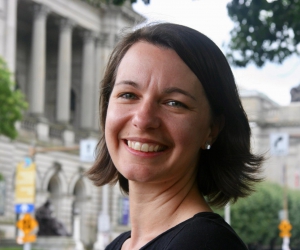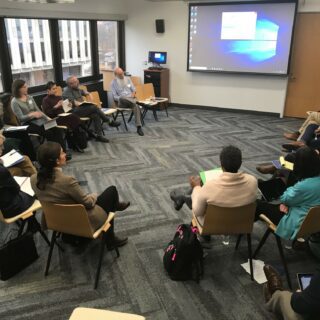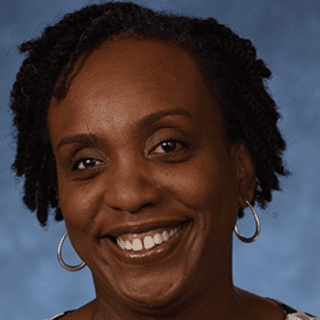
Shannon Wanless, PhD, Named Director of the Office of Child Development
For the first time in over 30 years, the University of Pittsburgh School of Education Office of Child Development is under new leadership.
Shannon B. Wanless, Ph.D. has been named the Director of the Office of Child Development, Valerie Kinloch, Ph.D., the Renee and Richard Goldman Dean of the School of Education, announced Wednesday.
“It is my honor to name Dr. Shannon Wanless the director of the Office of Child Development. I am confident in Shannon’s vision and ability to lead OCD into a new era of turning knowledge into action by responding to challenges that face children and families in Pittsburgh and around the world. She truly embodies the spirit of combining research and practice, stressing the importance of each informing the other.”
Effective July 1, 2018, Wanless will take over for current Director, Christina Groark, Ph.D. who will retire in June. Robert McCall, Ph.D., past Co-Director, retired in January 2018. Wanless will carry on the mission of the Office of Child Development, supporting policy makers and professionals through research, practice, and policy.
“I am honored to serve as the next Director of Pitt’s Office of Child Development,” Wanless said. “Drs. Groark and McCall have developed a team that already does so much to improve the lives of children and families and OCD is well-poised to take that work to the next level. With the support of Dean Kinloch and in collaboration with our outstanding university and community partners, this is truly an exciting time for OCD.”
Wanless’ work has consistently focused the intersection between scholarship and practice. She explains “the translation from research findings to implementation can raise new issues that require the expertise of practitioners and policy-makers to adapt and transform recommendations to be successful in real-world contexts serving wide range of people. In return, it is necessary to gather this collective wisdom and bring it to researchers to inform future questions and study designs so they are increasingly relevant to practice.”
Her research, work, and values are interwoven with the mission of the Office of Child Development. As the Director of the Office of Child Development, Wanless will continue to connect research and practice, and practice with research, to improve the lives of families and children.
About Shannon Wanless, Ph.D.
Wanless has been involved with the School of Education since 2011, when she started as the Associate Professor in the Department Psychology. She is also the Associate Director of Research at the Office of Child Development, where she has overseen more $1 million in grants and sponsored research since taking on the role in 2017.
University + Early Childhood
She has a hand in almost all Early Childhood happenings within the University of Pittsburgh. Wanless is an editorial board member in Early Childhood Education, School Psychology Review, and Early Education and Development. She also is a founding member of the University of Pittsburgh’s Early Childhood Collaborative (UPECC).
Teaching + Mentoring
Wanless is also committed to teaching and mentoring students. She is the director of the SEED Research Lab (Supporting Early Education and Development). She is a First Experience with Research Mentor at the University, and is an advisor to many doctoral and master students.
National
In addition to being widely known in the academic community, Dr. Wanless also has a national presence. She has been an invited member of the Collaborative for Academic and Social Emotional Learning (CASEL) since 2015.
About OCD
OCD was established in 1986 by grants from The Heinz Endowments and Buhl Foundation. It is currently an $8 million-dollar unit that strives to improve the lives of children and families by conducting a variety of multidisciplinary, community-driven, responsive, collaborative projects that turn knowledge into action.
Most of OCD’s projects involve four basic functions:
Analyze information from research and professional practice
Innovate with service demonstrations and applied research
Learn and improve through monitoring and evaluation
Change practice and policy based on knowledge
While these functions are often implemented in the above sequence, projects can start with any function and move in any sequence with continuous reciprocal influence between functions.




